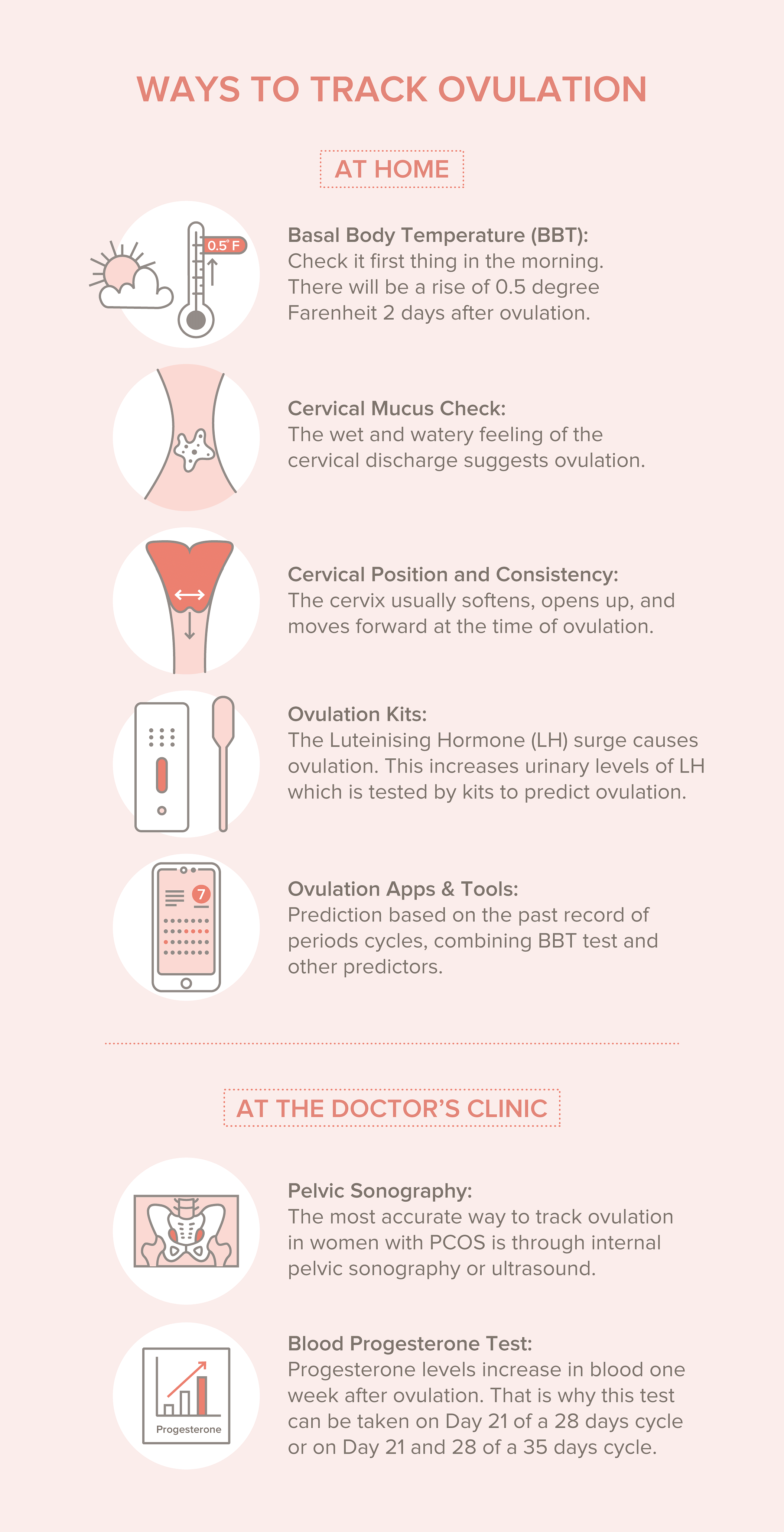Polycystic Ovarian Syndrome (PCOS) is perhaps one of the most common things women experience. It is a cluster of symptoms that can include irregular periods, scanty menstrual flow, acne, excess body hair, and weight gain.
For some women these symptoms might result in darkening of the skin and hormonal imbalance, especially the presence of higher androgen hormones and insulin resistance.
The high levels of androgen can interfere with the ovulation process due to which one out five women, who have PCOS, can have difficulty in conceiving naturally.
Other contributing factors include lack of exercise and consumption of high calorie food.
Challenges in PCOS
One of the most common factors about PCOS is that it results in irregular periods. This is why the exact timing of ovulation can also remain undetermined. In fact, at times you might skip ovulation but still experience bleeding. This bleeding happens in the lack or absence of ovulation, and is usually called anovulation.
It is also important to remember that anovulation is very common and sometimes there is nothing to worry about.
But you can still take control of your body and try different ways to track ovulation.

(*Note: Your BBT is the lowest temperature that you attain when you are completely at rest.)
It should be noted that sometimes these tests, especially the one where you test with the Ovulation Kit, can be inaccurate. The Luteinising Hormone is at a constant high during PCOS and hence, it might give incorrect results.
Tracking ovulation is not mandatory for all women with PCOS. While some women might not find it difficult to conceive, others might choose not to conceive. It is after all a personal choice.
However, it is advisable that if a woman chooses to conceive, trying naturally for the initial few months is the best option. Opt for a few dietary modifications, exercise, and maintain a healthy lifestyle. It not only prevents financial and emotional stress but can also help with maintaining periods and PCOS. Try to go for medical attention only if you feel that you want to or you need to.



